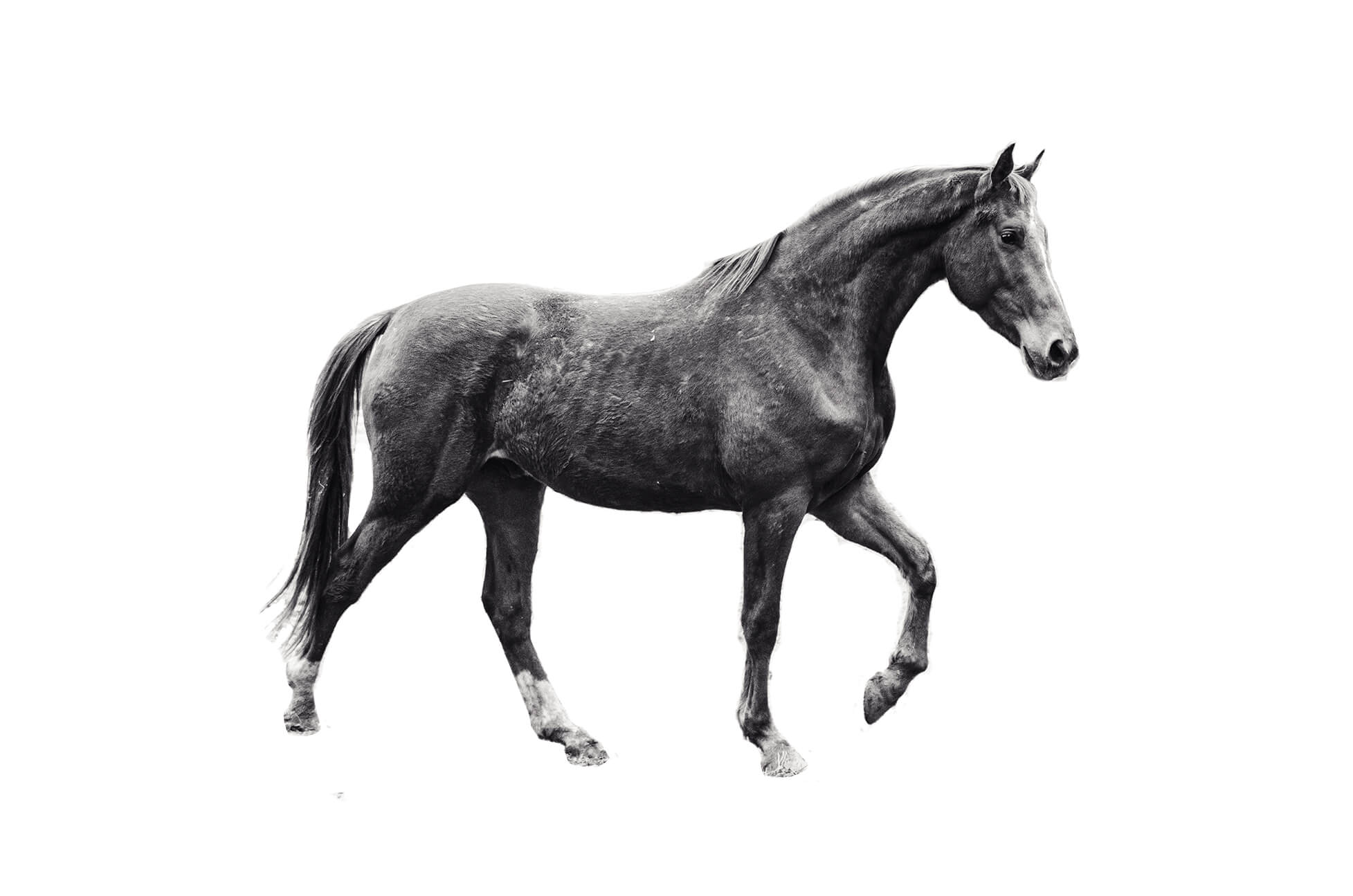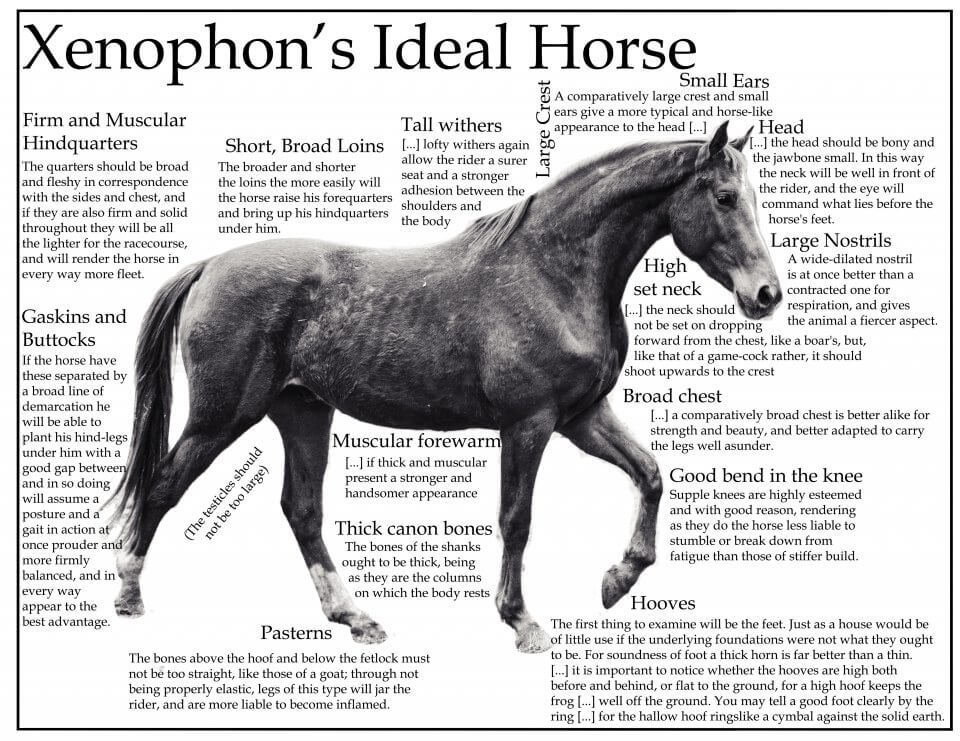
Following up on the previous post about Xenophon, I wanted to look at what he actually wrote in The Art of Horsemanship. How close is it to modern horsemanship? Would we follow these ideas today?
If you’d like to read The Art of Horsemanship, it’s available free here.
He starts his book with the selection of the horse.
Part I: Selecting a Young Horse
As a young horse has not been broken, the best way to judge the horse on its conformation. Based on Xenophon’s recommendations, I beefed up a picture of Stu to turn him into a beacon of horse perfection.

Stu’s looking pretty good! I wonder if there’s any chance he will turn into that as he grows up… I’m imagining he’d have to put on about 300 lbs to look that way – and rearrange some bones.
This isn’t too far from our modern conformation ideals. Certainly starting with the hoof conformation is still recommended today. “No hoof, no horse,” goes the common saying.
Now that you have your perfect young horse, here’s how to train it.
Part II: Breaking the Colt
Xenophon makes training sound so easy: The best way to train a horse: have someone else do it.
A young man should be a trainer of horses, as an older man has other matters to attend. But, the colt should have been raised right, know the kindness of humans as to crave their company, and being shown different sights. If he is afraid, he should be shown through gentle handling that he does not need to be.
Xenophon, The Art of Horsemanship
However, someone (Xenophon suggests a groom) should familiarize the horse with crowds, and all sorts of sights and sounds. And if the horse is afraid, gentleness should reassure the horse that there is nothing to be afraid of.
These all sound reasonable. Truly it makes sense to send a horse to a trainer, and to get it used to being in stressful situations.
Part III: Selecting the Older Horse
If you are buying a horse already broken to ride, Xenophon first recommends no horse older than 5. To check this, see if the horse has lost his milk teeth yet. Much like humans, horses have baby teeth until their permanent teeth grow in around age 5.
Next, Xenophon lists many things to check in both handling and riding:
- Can the horse be bridled quietly?
- Will the horse stand quietly to be mounted?
- Will the horse stand quietly when other horses pass by and willingly ride away from other horses?
- Can the horse be stopped from full speed?
- Will the horse turn in obedience to the rein?
- Is the horse docile to the whip?
Since the horse will be used for war, it must be tested on everything which the horse might encounter. This includes leaping ditches, scrambling over walls, scaling up and springing off high banks. The horse must be galloped up and down steep pitches and sharp inclines, and along a slant.
This is not just to test his willingness, but also to test his soundness.
But, interestingly enough, Xenophon says not to automatically reject a horse that cannot perform these things, as he may just have a lack of experience. With experience, the horse will become confident. However, be cautious of a horse with nervous temperament.
The most important traits in a horse are being sound-footed, moderately fast, willing and able to undergo toil, and above all things, be obedient. These things will give the least trouble and greatest security to the rider.
Just thinking about doing this with my already trained horses makes me nervous. I have no idea if they would gallop up and down steep slopes, and I don’t even think I could without being afraid. Most of these things make me worry the horse is going to slip and fall. Scary!
Imagine going to try a horse and insisting upon doing these things. I’m pretty sure the seller would make you get off the horse.
But, really, being able to ride away from horses, have horses pass by without being upset, and be obedient to the rider, these are all things we want/expect from our horses. It’s just the other stuff that’s a little weird. Maybe if you’re a really hardcore eventer.
Would your horse pass Xenophon’s test? I’m pretty sure mine wouldn’t!

Xenophon on Caring for Horses - An Equestrian Life
[…] selecting your horse, Xenophon describes the best way to care for it. Spoiler alert: have someone else do it. Wow, who […]
Anonymous
This is really interesting, im doing a research project on horse training and to think ancient people taught like this is really cool!
Who Was Xenophon? - An Equestrian Life
[…] Xenophon on Young Horses […]
Cynisca: The Spartan Princess Who Was the First Female to Win an Olympic Medal - An Equestrian Life
[…] Xenophon on Young Horses […]